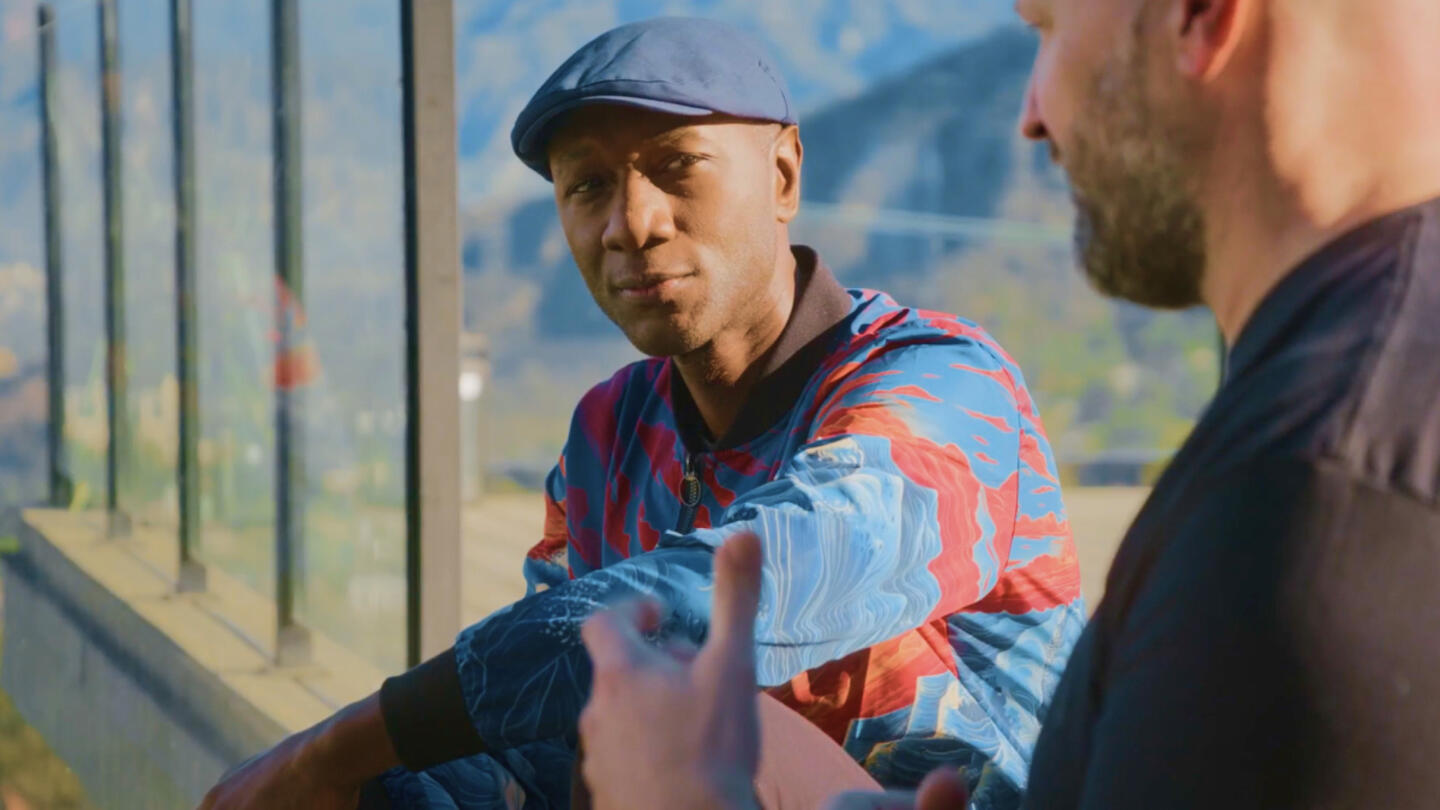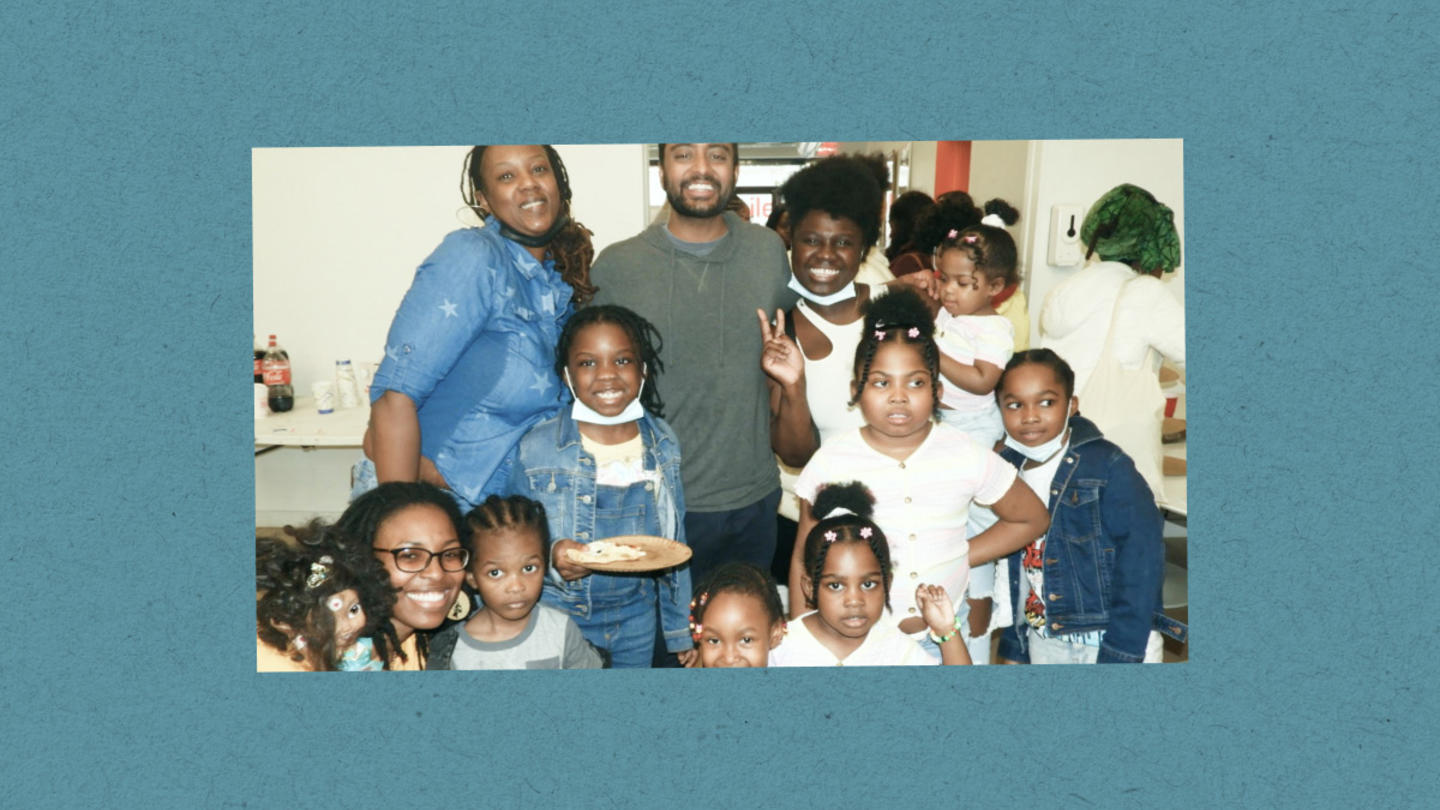In some native cultures, poverty means "people without family." This is why GatherFor, a New York City nonprofit, is supporting low-income residents by creating neighborhood families, dealing with the challenges of poverty by building collective wealth and power.
The need for new ways to fight poverty is greater than ever. U.S. poverty rates soared in 2022, jumping from 7.8% to 12%. It's the largest jump on record, but it's only an average. Poverty tends to concentrate in neighborhoods. For example, the poverty rate in Brownsville, a neighborhood in Brooklyn, NY, was three times the national average in 2021.
According to the Surgeon General, social isolation is, in fact, a key factor in poverty: "Connected communities generally experience higher levels of economic prosperity."
Teju Ravilochan, the founder of GatherFor, figured this out intuitively by watching his own parents move from poverty to prosperity—with the help of "countless acts of community and kindness." He founded GatherFor out of a desire to intentionally create that connectedness for people experiencing poverty.
GatherFor's model is different from other community support organizations. Instead of bringing in outsiders—experts, social workers, volunteers, benefit providers—GatherFor works with communities to build their own power. It organizes neighborhood teams to act as second families to one another. Team members are neighbors who intentionally become friends. They live close to each other and are dealing with many of the same challenges. There are no "experts" per se, just neighbors that have pledged to support one another.
The ultimate goal: "Fierce belonging," says Ravilochan. That fierce belonging is what empowers teams to lift each other out of poverty.
GatherFor is building community power
In fact, one of GatherFor's foundational beliefs is that solutions to societal problems start with belonging.
Each neighborhood team is made up of five to seven families. Those families pledge to support each other for at least three months, with most continuing to support one another for two years or more. They intentionally create belonging by holding weekly meetings where they listen to each other's stories and discuss the challenges they are facing. Team members show up to help each other and to feel connected.
Neighbor Teams pool funds and rotate who receives the full pool each month to help one another pay bills. They also watch one another's kids to defray childcare costs. They help one another find food pantries and job opportunities and share how to navigate complex government support systems. The belonging these GatherFor Neighbors create with each other also results in practical improvements in their lives.
For many people experiencing poverty, belonging to a neighborhood team is life-changing. One GatherFor participant put it this way, "This is a family. I would do anything for this community. I went through a period of darkness, and they pulled me out of it."
Another said, "When I have nowhere else to go, I have a group of people I can turn to."
GatherFor provides financial assistance directly to community members by matching what they pool each month up to $500 and by providing each team with $300 per month to use for gatherings. The team decides how to use the money.
Sign up for the Strong & Safe Communities newsletter for stories, ideas, and advice from changemakers working with their neighbors to address the biggest problems we face.
GatherFor is helping neighbors help each other
Ravilochan chose to pilot GatherFor in the Brooklyn neighborhood of Brownsville—with good reason.
In Brownsville, more than a third of households make less than $20,000 a year. With a population 400,000, it has the highest concentration of public housing in the United States.
One of the struggles of living in NYC public housing is that the New York City Housing Authority (NYCHA), the organization responsible for apartment maintenance, is spread thin. The average wait time for repairs is 18 days, with some waiting much longer. On their own, residents feel powerless to insist their needs are met, but together, one GatherFor team found a way to help an entire apartment community get help.
GatherFor made 1,616 housing repairs
This summer, "Glenmore Proud," a GatherFor neighborhood team, decided they could help all their neighbors in the Glenmore Plaza, a Brownsville public housing complex. This team knocked on every door in the complex, collecting repair work orders.
They then submitted the work orders to NYCHA and made a promise—if NYCHA would complete the orders by a deadline in August, GatherFor teams would organize a neighborhood celebration. They dubbed the event a "kindness party."
GatherFor supported the kindness party by reaching out to local businesses and municipal offices to participate. Altogether, 18 partner organizations provided free services, food, and gifts for more than 400 partygoers. Community members invited residents of nearby homeless shelters to come share a meal (some people said they hadn't eaten in three to seven days), and Grow Brownsville, a local nonprofit, provided 50 free meals to send with these attendees when they left.
New York City Council Member Sandy Nurse's office donated $422,000 to the Glenmore Plaza Resident Association to help repair the broken doors in Glenmore buildings. And NYCHA pulled through, completing 1,616 repairs in time for the party. The average response time was six days, three times faster than usual. The NYCHA repairs were made in 60 days, when many residents of Glenmore Plaza had been waiting years for these repairs.
The Glenmore Proud team has shown that neighbors working together can solve big problems, even in the midst of poverty. Although they and other GatherFor teams are looking forward to more kindness parties, they've also learned that fierce belonging comes through many small acts of love and support.
***
GatherFor is supported by the Stand Together Foundation, which partners with the nation's most transformative nonprofits to break the cycle of poverty.
Learn more about Stand Together’s efforts to build strong and safe communities and explore ways you can partner with us.

At this ‘resort,’ children with intellectual disabilities are seen as gifts to be celebrated and loved.

Veterans experience loss when leaving service. Could this be key to understanding their mental health?

The Grammy-nominated artist is highlighting the stories we don’t get to hear every day.

With his latest project, Blacc isn’t just amplifying stories — he’s stepping into them
